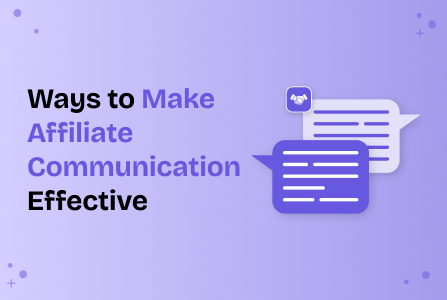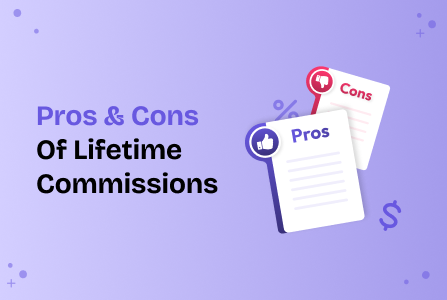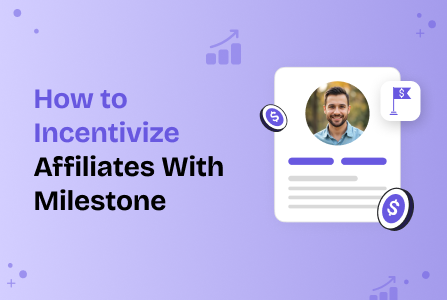Affiliate Marketing vs. Influencer Marketing: Which is Best for You?
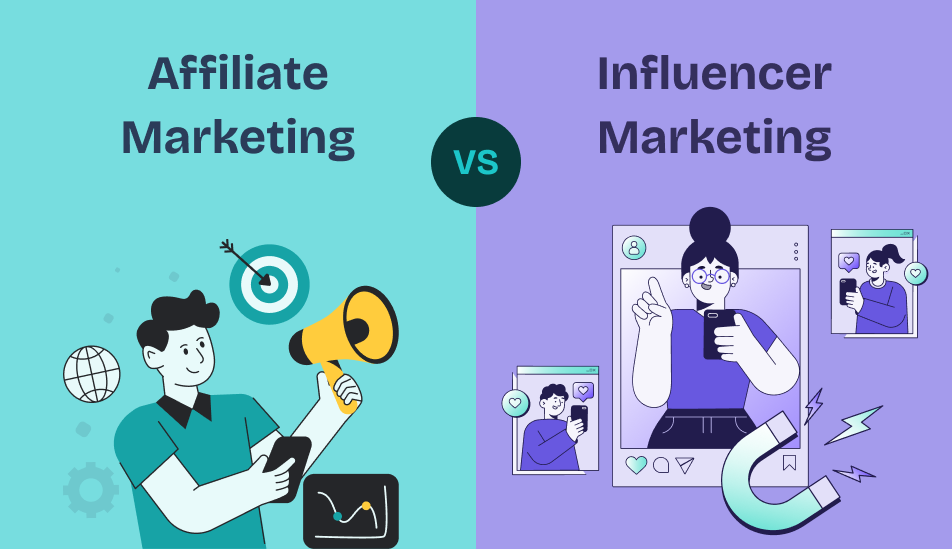
Are influencers the new gold in marketing? With SEO changes and the rise of AI-driven search, is traditional affiliate marketing lagging behind? Where – and how – should you start to gain the best ROI? Influencers make brands successful, while affiliates only make commissions.
Even though it’s a super hard and multidimensional question – affiliate marketing or influencer marketing for your business, we know where to look and what to think about to make the right choice! Let’s begin.
What’s the Key Difference: Affiliate vs Influencer Marketing?
In essence, both affiliate marketers and influencers are affiliates if we mean ‘partners’. Both are perfectly able to drive you sales.

However, traditional affiliate marketing is based on the measured performance results, e.g. how many purchases were made through affiliate links. It’s a more understandable, performance-based marketing. As a business owner, you always pay a commission based on much value an affiliate brought you. Your products or services are promoted through URLs with tracking parameters on content platforms and websites.
Influencer marketing is all about getting the word out about a brand. As a business owner, you should first pay influencers to make them promote your product or service: that can be money, sponsorships, or even just sending them free stuff. You can’t track directly if people actually buy anything, thanks to those ads. Social media, especially videos, are the top popular platforms for influencer marketing.
Pros and Cons of Affiliate Marketing vs. Influencer Marketing
Let’s slice this pie and take a more precise look at the layers.
Pros & cons of affiliate marketing
The times for SEO and link-based affiliate marketing are rather tough. Search engines don’t prioritize affiliate links anymore, AI models answer people’s questions faster and better, and 60% of Google searches end without a click.
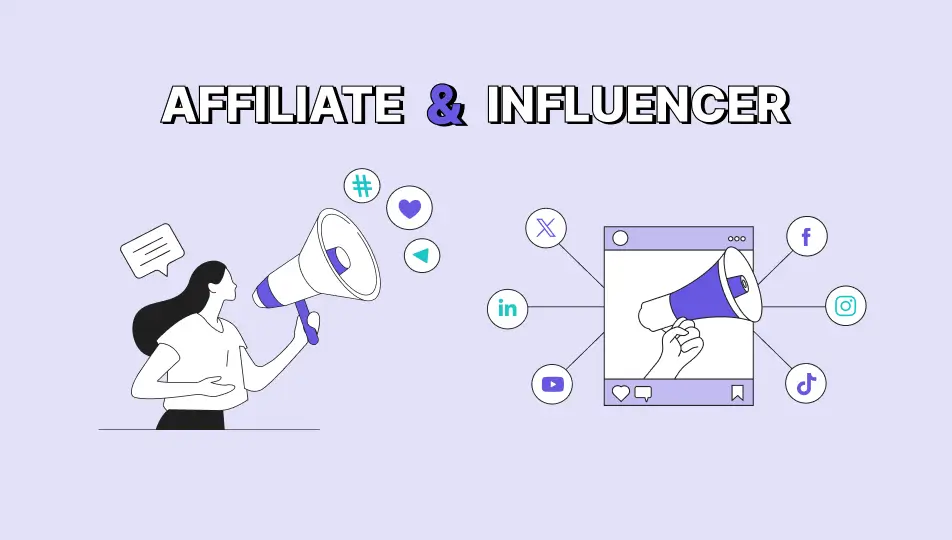
While it might sound like a headache for affiliate marketers and not particularly business owners, you should be aware of these problems before you invest your time and resources into building your affiliate marketing strategy. The good news is that you can solve many problems with the right piece of affiliate marketing software.
Pros of affiliate marketing for business owners:
- Longer-term value compared to influencer marketing (e.g. blog posts live longer than a TikTok video).
- You don’t pay until an affiliate drives you a lead.
- Low risks and predictable ROI.
Cons of affiliate marketing for business owners:
- SEO and AI pose threats that make it difficult for affiliate-created content to be discovered.
- It takes time to negotiate deals or solve issues of tracking affiliate earnings.
- Less engagement with content if it’s highly impersonal.
Pros & cons of influencer marketing
‘Influencer’ is a broad term. Many people can call themselves one, but you can’t always gauge their potential reach and impact just by looking at their profiles. Is it an author that just wants exposure? Finding the right influencer and communicating with them your deals is a hard task.
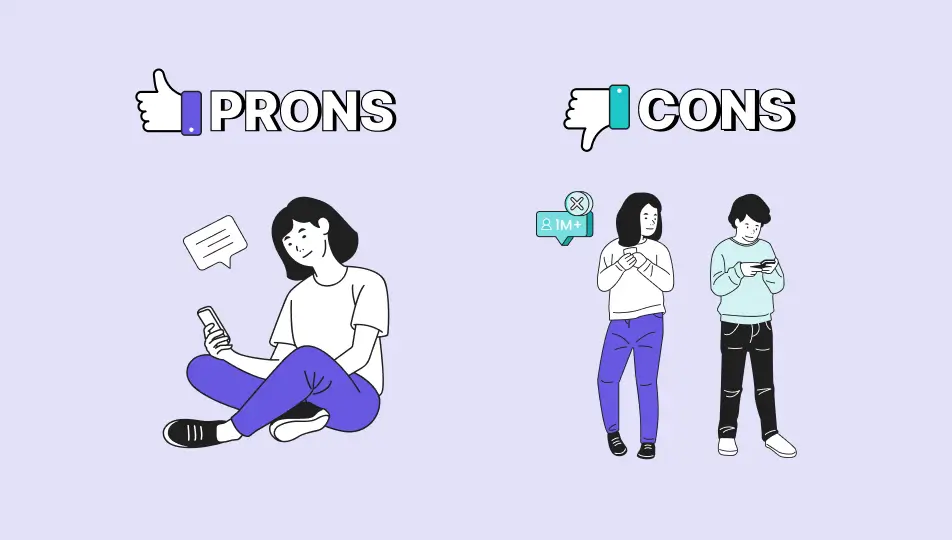
However, the market seems to be in favor of influencer marketing. Potential customers trust stories on TikTok, and there is often a more emotional and authentic connection with people. Users want immediate answers, so that Google, social media, and LLMs, for example, ChatGPT, de-emphasise links, with all the priority going straight to AI answers and social media platform engagement.
Pros of influencer marketing
- Traffic and links are no longer the sole measure of success – brand awareness and influence matter more.
- Influencers can create concise, complete content that provides emotional value.
- Focus on engagement and brand authority is more important and strategically correct for the long run.
Cons of influencer marketing
- You need to pay upfront, and normally don’t have enough tools to measure results.
- Short-term value because such content can’t generate sales over time.
- Unpredictable ROI.
Where is the Market in 2025 – Affiliate Marketing or Influencer Marketing
The Dubai chocolate phenomenon is a clear sign of how influencer marketing can get viral and drive whooping sales around the globe. Influencers can make stories that resonate with people and evoke a variety of emotions.
Investing in an influencer, you never know when your product can get viral and level up your business tremendously. Investing in classic affiliate marketing through link clicks gives you potentially many more partners who can craft content over time, over and over again.
But don’t forget – your brand and product type might play a key role. There is a rule of thumb that various types of marketing traditionally work for these categories:
Best for influencer marketing:
- Low-cost, impulse-buy products
- Beauty or service businesses
- Food and trending items
- Travel
- Devices
- Tickets and streaming services
Best for affiliate marketing:
- Software and hardware
- Luxury products
- Furniture
- Travel
- Financial services
Best for a mixed approach:
- SaaS and subscriptions
- Travel and hospitality
- Luxury products
Some of these categories are interconnected, so how to make it all work? Here are tips to balance both types of affiliate marketing:
- Try a mixed approach, asking influencers to also use affiliate links so that you can measure results.
- Seek cooperation with micro-influencers who work in narrow niches and have probably smaller but more engaged communities.
- Balance risks by offering influencers smaller upfront payments mixed with commissions.
- Let content affiliate marketers do their thing and simplify affiliate management with the right software and automated payouts.
- Support affiliate marketers with creative assets that can promote your content in a more consistent way.
- Prioritize affiliates and influencers that deliver valuable, stand-alone content, even without relying on link clicks.
- Don’t focus solely on influencers or content creators; turn happy customers into micro-affiliates.
- Instead of payments to influencers, offer them your product or service for free.
- Entice top-performing influencers with bonuses.
- Encourage influencers to keep promoting instead of one-and-done posts.
Concluding
Consumers are fickle creatures, and even if you think you understand what makes them tick, everyone is motivated by something different. The secret of success is getting the most out of two types of affiliate partners, trusting influencers with an ambassador role and emotional value, while also investing in a more pragmatic, evergreen approach of affiliate marketing through link clicks.




